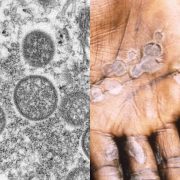The fear of dead bodies or corpses is known as necrophobia, which is a severe anxiety disease. The word necrophobia comes from the Greek words nekros, which means corpse, and phob(os), which means fear or uneasiness. Funerals and wakes are generally avoided by those who have this phobia because they are afraid of seeing dead bodies. Let’s take a closer look at Necrophobia.
Necrophobia’s Causes:
The fear of corpses, like all extreme kinds of anxiety disorders, can be traced back to childhood. The causes differ from person to person and are naturally dependent on the individual. The following are some frequent circumstances that can cause a dread of dead things:
- A terrible event in the past – The phobic may have witnessed the death of a close relative when they were young, leading to great fear.
- Many worries and phobias are learned responses that are picked up from the environment. A kid, for example, might see a trusted adult’s scared reaction. After that, he receives a similar response. Overly worried parents may pass on their anxiety to their children.
- Genes – Many phobias, like necrophobia, are passed down down the generations. Certain genes make some people more vulnerable to anxiety disorders than others.
- The terrified reaction one has to all things associated to corpses or dead objects can be rather embarrassing. This, in turn, creates a vicious cycle in which a person gets fearful of receiving a negative response and continues to dwell on unpleasant ideas and emotions. This makes her/him even more apprehensive about confronting a scenario involving bodies.
- Stress – Unresolved chronic stress can lead to phobias. Anxiety and sadness, as well as work or personal stress, can evolve into phobias if left untreated.
- Movies, novels, and other forms of media all contribute to the feeding of one’s worries.
Fear of Corpses Symptoms:
Phobias cause a wide range of symptoms in their victims; what you are experiencing may or may not be the same as what another Necrophobic is experiencing. Necrophobia can cause a variety of emotional, bodily, and psychological symptoms, including:
- Feeling light – headed or woozy?
- Losing touch with reality and experiencing a sensation of disconnection
- Choking sensations or shortness of breath
- Palms sweaty and heart racing
- Chest tightness makes me want to flee and hide.
- Inability to think clearly and a sense of loss of control I’m dying of boredom.
- Flashes of heat and chill
- Shaking or trembling
- Numbness
- I’m afraid of fainting spells.
Necrophobia’s severe symptoms can trigger a full-fledged anxiety or panic attack. Even just having this fear can be terrible, making the phobic feel pressured and powerless. Such emotions might also leave a person feeling absolutely drained. Fear of losing control might cause an individual to become aloof and unsociable. Many phobics avoid circumstances in which they might be confronted with the object of their phobia, such as funerals and wakes. Even discussing corpses or watching films in the genre might be frightening. As a result, he or she is frequently mocked.
Necrophobia’s Treatment:
Self-advocacy:
The most effective treatment for overcoming a fear of dead things is self-help. Learn everything you can about this fear. Speak with someone you can trust, such as a family member or a friend. Deep breathing, counting backwards, or relaxation techniques such as meditation, positive imagery, and others can help you handle anxiety. You can also join an online or offline peer group. Speaking with others who have had similar anxieties can be reassuring and provide a new perspective on things.
Treatment / Therapy:
- There are a variety of therapies for phobias like this one. Your doctor may be able to suggest one.
- One of them is talk therapy. Consult a psychologist or a counsellor for assistance in coping with anxious problems.
- Necrophobia is also commonly treated with cognitive behavior therapy. To alter negative ideas and behavioral patterns to more realistic ones, this therapy employs a range of techniques, including desensitization.
- Exposure therapy, in which the phobic is safely exposed to the object of her or his phobias, in this case corpses, can also help. You will feel more in control of your fear as you have more experiences
- Another helpful treatment option is hypnotherapy. Seek the assistance of a qualified hypnotherapist.
If the foregoing treatments are ineffective, your doctor may prescribe antidepressants, tranquillizers, and/or beta-blockers. However, many of these are addictive and have negative side effects, so they should only be used as a last resort.
-

1 Who Will Be Offered the Vaccine for Monkeypox and When
-

2 First Death in Nigeria by Monkeypox Virus
-

3 What is a Vegan Nutritionist?
-

4 Preventive Dental Cares For Lazy Children
-

5 Ways ED Natural Remedies Work Better Than Colorful Pills
-

6 Causes of Female Sexual Dysfunction
-

7 WHAT DOES BEING A BRISBANE SPORT TRAINER INVOLVE?
-

8 Premature Ejaculation Can Be Controlled
-

9 Blue Pill – Rip Off or Wonder Cure for ED?
-

10 Fact: Penis Pills CAN Work. Here’s How

